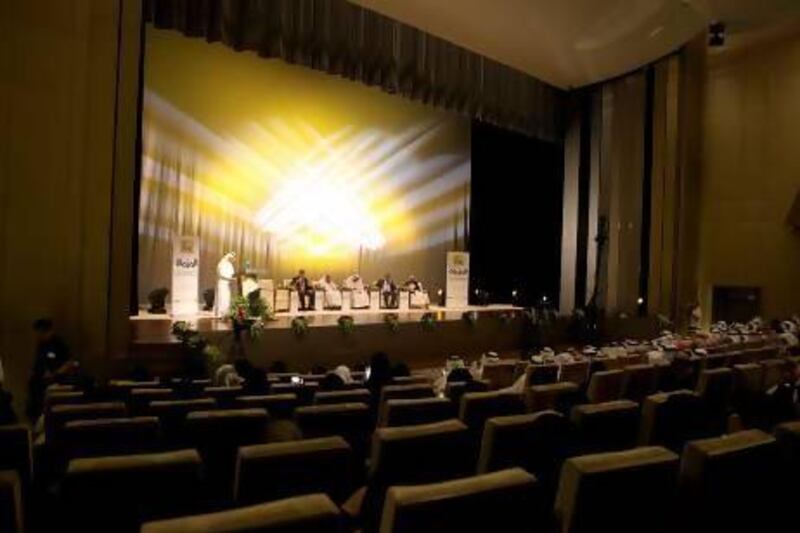ABU DHABI // Members of the UAE branch of the Muslim Brotherhood still pledge allegiance to its leader in Egypt, an expert on the Islamist political group has alleged.
The Brotherhood promised to end the practice 13 years ago when they were told it was unacceptable, but the loyalty oath continues in secret, said former senior member Tharwat Al Kharbawi, a leading Egyptian lawyer.
To swear allegiance to Mohammed Badie, the Brotherhood's leader since 2010, members sit on the floor of a darkened room in front of a round table with a gun and a Quran, "representing religion and power", Mr Al Kharbawi told an audience at a seminar at Zayed University.
"Can this be?" he said. "To give allegiance to someone else? A duplication in allegiance is very dangerous." Dr Salem Humaid, founder of Al Mezmaah Studies and Research Centre, who organised the seminar, said: "This was not known to us, we now know. This is dangerous."
Mr Al Kharbawi left the Brotherhood in 2002, critical of its use of Islam to justify its political activism. His most recent book about the organisation is Secret of the Temple.
With Sheikh Nahyan bin Mubarak, the Minister of Higher Education and Scientific Research, in the seminar audience, Mr Al Kharbawi spoke of the Brotherhood's history in the UAE and the dangers it posed.
Mr Al Kharbawi told the seminar that the spread of the Brotherhood in the UAE started in the mid-1960s, when many Egyptians sought refuge after being chased out of their homeland.
"The UAE took in Brotherhood members," he said. Others went to Kuwait and Saudi Arabia.
"The leadership accepted them as preachers in good faith. There was even a charity for them and the establishment of Islah.
"The people thought they were victims. They said, these are the people of God. Now they have stopped saying that because they have seen how they are in leadership, and what they say has changed completely."
For the Brotherhood, he said, it was important to control education and media.
While unable to give an estimate of how many Brotherhood members were in the UAE, Mr Al Kharbawi said there were Emiratis, Egyptians and others from different nationalities. While all were part of the same organisations, they worked separately. Each knew little about the others, he said.
Eleven Egyptians were detained by state security recently over their alleged ties to the Muslim Brotherhood in their home country. There was continuous coordination between the two, secret meetings and exchange of classified information, the security services have said.
But Mr Al Kharbawi said after the seminar that detaining such people was not enough. "They need to be countered intellectually, not just by security measures," he said. "Because security measures give them sympathy and the image that they are victims."
Last summer, authorities arrested a group of 60 local Islamists tied to Al Islah, the UAE branch of the Muslim Brotherhood, on charges of threatening state security.
Dr Ali Bin Tamim, editor and chief of the Emirati news website 24, said one way to fight them as students would be to not take everything as a fact.
"Do not rely on one source, we must not stop the idea of questioning," he said.






